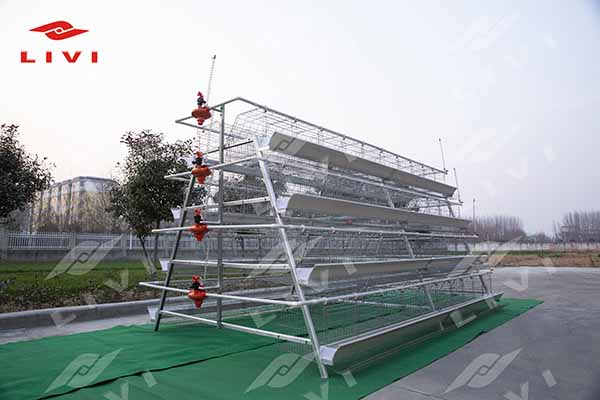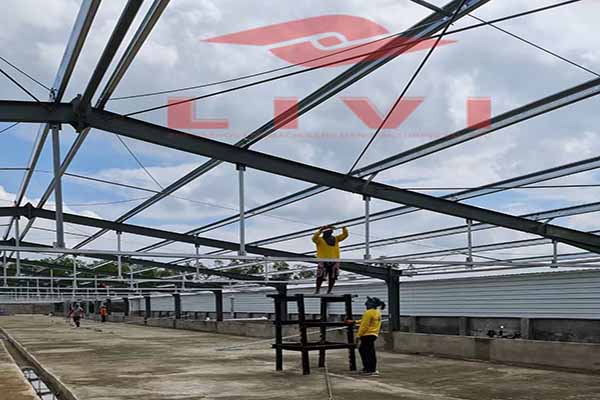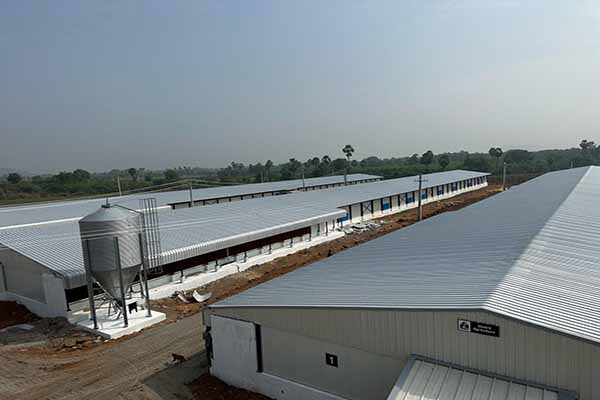How to Start a Chicken Farm in Sri Lanka: A Comprehensive Guide
Time : 2025-04-15
Starting a chicken farm in Sri Lanka can be a rewarding endeavor, providing fresh, local eggs and poultry to the market. If you’re thinking of embarking on this venture, you’ve come to the right place. In this article, we’ll walk you through the essential steps to get your chicken farm up and running. Let’s dive in!
1. Research and Planning
Before you start your chicken farm, thorough research and careful planning are key. Here’s how you can get started:
1.1 Market Research
Understand the market demand for chicken products in your area. Are there enough consumers to support your farm? What kind of chicken products are they looking for? You can gather this information by talking to local farmers, visiting markets, and checking out competitors.
1.2 Business Plan
A well-thought-out business plan will guide you through the initial phases of your chicken farm. It should include your business goals, marketing strategy, financial projections, and operational details.
2. Choose the Right Location
The location of your chicken farm is crucial for its success. Here are some factors to consider:
2.1 Accessibility
Your farm should be easily accessible for suppliers, customers, and any other stakeholders. Proximity to markets can significantly reduce transportation costs.
2.2 Climate and Environment
Sri Lanka has a tropical climate, which can be beneficial for chicken farming. However, ensure that the location provides a suitable environment for the chickens, including enough shade, clean water, and a favorable temperature.
2.3 Size of the Farm
Decide on the size of your farm based on your budget, market demand, and the scale of operations you want to undertake. Remember, starting small can be more manageable and less risky.
3. Legal Requirements and Permits
Compliance with local regulations is essential for starting a chicken farm in Sri Lanka. Here’s what you need to do:

3.1 Registration
Register your business with the Department of Commerce and get a registration number. This is required for all businesses in Sri Lanka.
3.2 Health and Safety Permits
Contact the Department of Animal Health and the Department of Public Health for the necessary permits. These include health inspections for the farm and its products.
3.3 Environmental Clearance
Ensure that your farm meets the environmental standards set by the Department of Environment. This includes waste management and emissions control.
4. Selecting the Right Chicken Breed
The breed of chicken you choose will affect  the type of products you can offer and the efficiency of your farm. Here are some popular chicken breeds in Sri Lanka:
the type of products you can offer and the efficiency of your farm. Here are some popular chicken breeds in Sri Lanka:
4.1 Layers
Layers are bred for egg-laying capabilities. The Lanka Brown, ISA Brown, and Lohmann Brown are popular choices in Sri Lanka.
4.2 Broilers
Broilers are bred for meat production. Ross, Cobb, and Hubbard are some of the most commonly used broiler breeds in Sri Lanka.
5. Farm Infrastructure
Your farm’s infrastructure should support the health and productivity of your chi ckens. Consider the following aspects:
ckens. Consider the following aspects:
5.1 Chicken Coops
Build sturdy and well-ventilated coops that protect the chickens from weather elements and predators. Ensure there’s enough space for each chicken to move around comfortably.
5.2 Feed Storage
Store feed in a dry, rodent-proof area. Use quality feed that meets the nutritional needs of your chickens.
5.3 Water Supply
Provide clean, fresh water at all times. Regularly check the water lines and ensure they are free from leaks and contaminants.
6. Health Management
Chicken health is critical for the success of your farm. Implement the following practices:
6.1 Vaccination
Follow a vaccination schedule recommended by the Department of Animal Health to protect your chickens from diseases.
6.2 Regular Health Checks
Perform regular health checks to detect any signs of illness early. This includes examining the chickens’ feathers, weight, and behavior.
6.3 Biosecurity Measures
Implement biosecurity measures to prevent the introduction of diseases. This includes wearing gloves and boots when entering the coops, regular cleaning, and disinfection.
7. Marketing and Sales
Develop a marketing strategy to reach your target market. Here are some ideas:
7.1 Direct Sales
Sell your products directly to consumers at markets, community events, or through home delivery services.
7.2 Online Marketing
Use social media platforms and online marketplaces to reach a wider audience. Create engaging content and offer promotions to attract customers.
7.3 Distributors and Retailers
Partner with local distributors and retailers to get your products into supermarkets and other stores.
8. Financial Management
Monitor your farm’s financial health closely. Keep track of your expenses, income, and profits. Here are some tips:
8.1 Budgeting
Prepare a budget to forecast your expenses and income. This will help you manage your finances effectively.
8.2 Record Keeping
Keep detailed records of all financial transactions. This will be useful for tax purposes and for making informed decisions.
8.3 Seek Professional Advice
Consult with a financial advisor or accountant to ensure you’re on the right track.
Starting a chicken farm in Sri Lanka can be challenging, but with careful planning and dedication, it can also be a profitable venture. Follow these steps, and you’ll be well on your way to success.











